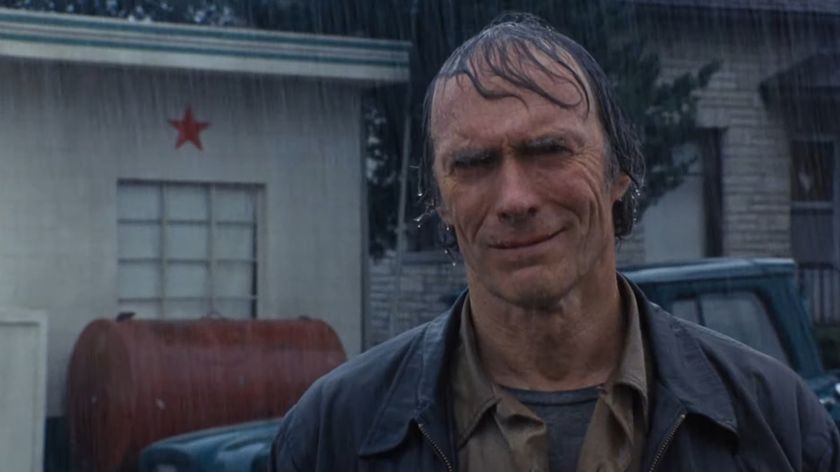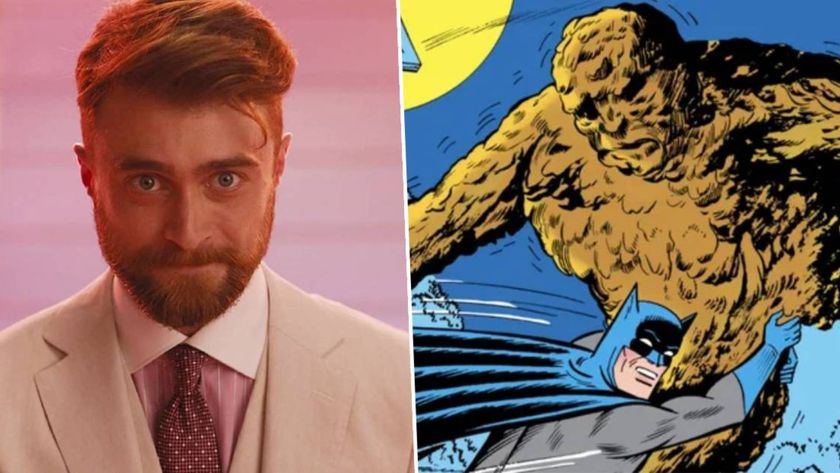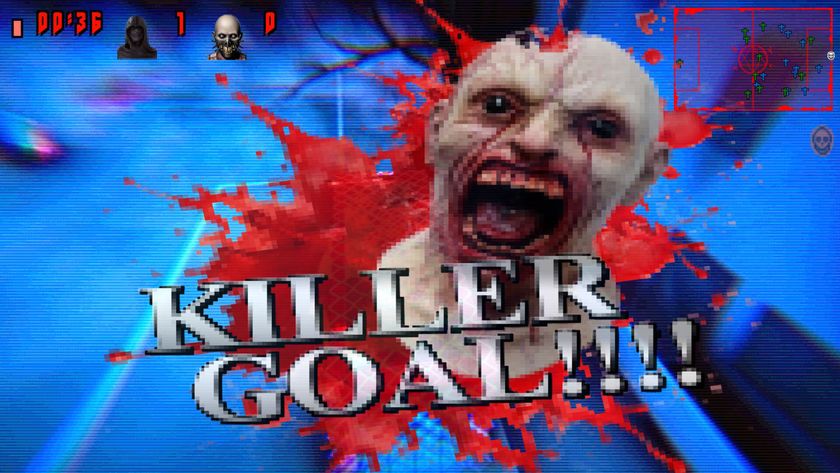The Making Of Sightseers
Ben Wheatley, Alice Lowe and Steve Oram talk caravans and killings...
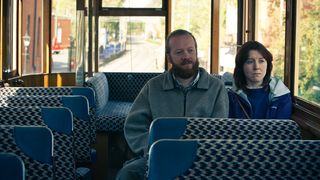
The Idea
Alice Lowe: Steve Oram and I are both comedians. We started talking about our shared Midlands background, and we just started improvising as these characters.
We were talking about these camping holidays we’d been on in childhood, and starting talking as if we were a couple having an argument.
The characters came out quite spontaneously, but also they quite dark as well, which was quite amusing to us.
So we did that as live double act. It got picked up for a TV teaser, and then all the TV channels rejected it as they said it was too dark.
We knew there was something in it.
We put it online and sent it to Edgar Wright, who I’d worked with before, and not expecting anything, just thinking he might enjoy it and then he got into contact with us and said you should take this to Big Talk and develop it as a feature.
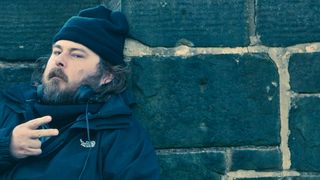
The Director
Ben Wheatley: Doing Sightseers made sense for me.
It fitted with my other two movies ( Down Terrace / Kill List ), so in that sense it was good.
And then I wanted to make a film that was cheerier after Kill List .
Horror’s such a strong genre you could end up just making horror film after horror film and I thought - not that I won’t make another horror film - but I didn’t want my journey in cinema to end like that.
Alice Lowe: Kill List came out and blew us away and I think a lot of other people, but it really got the mythical element that we really wanted in Sightseers as well; there’s a Pagan element to it, and stone circles and all of that kind of thing.
It just meshed really well and we were lucky that he didn’t go off to Hollywood or whatever as the offers I’m sure were on the table at that stage.
He’d kind of committed to it and we’d got excited about how he’d shoot it and stuff.
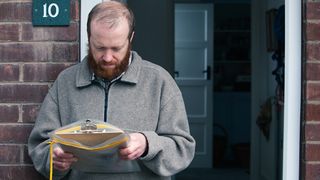
The Script
Steve Oram: We had the script pretty tightly down when we filmed.
Alice Lowe: We got all of the script, and we improvised around it as well.
Steve Oram: It was very important to hit certain bits and points within a certain scene so we had to keep those things in there.
Alice Lowe : But then Ben would say ‘Oh that’s interesting over there. Let’s go and do that’.
I’d go ‘I feel like I’d like to do this right now.’ And he’d go, ‘Go on and do that’.
Ben and his Director of Photography Laurie Rose would be grabbing visual things and obviously, you’re outdoors so they’d be an incredible sunset and he’d be like ‘Right, we got to get that, got to get this’.
The way Ben works, and the DoP that he works with, they are able to grab that stuff very, very quickly.
And that’s just really, really creative.
Ben Wheatley: Yeah, it was very loose like that and Laurie was really good like that but the crew were ready just to go and do stuff.
And we used a lot of available light so we could go and do that kind of thing without it becoming a major ball-ache, you know?
But we did stuff like dressing the mother’s house head to toe, even rooms that weren’t in the script, so that we could go and jump out and shoot stuff in those rooms if we felt like it.
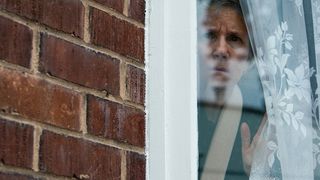
First Day Of The Shoot
Alice Lowe: There was a little debate about whether I was going to wear a wig or not.
Thank God, I didn’t wear a wig. It would’ve been a disaster.
Ben wanted me to have long hair in it, for some reason. I was like ‘I’m not bothered’ – I’d rather look like a normal person.
Ben Wheatley: Because I wanted it to blow in the wind, because that always looks good.
Alice Lowe: Those early days in the house felt like a filmed rehearsal. Let’s find out who the characters are within this environment.
I think the whole exercise – we had three days, which for a location is a long time, that’s like forever.
In three days you can get so much stuff, but I think it was letting the characters settle in, letting us relax giving Ben the performance that he likes.
I think, to an extent, all filmmakers like that because you start the first day going ‘Oh my god! Oh my god!’ You can’t maintain that level of neurosis.
Ben Wheatley: All of Down Terrace was in a house like that.
And the first few days of Kill List was exactly the same as well.
It’s a really good way to start because you can shoot really fast and you get lots of stuff done and then everyone gets to know what the pace is rather than starting with some difficult effects thing.
Steve Oram: It was nerve-wracking when we first walked into the house.
Everything was set up to make us feel right as performers. The whole house was decked out in every room.
People had invested a lot of faith in Alice and me because we’re not movie stars and no-one knew who we were and they’ve allowed us to be the leads in this film.
That put pressure on us, but that validation of our work was brilliant.
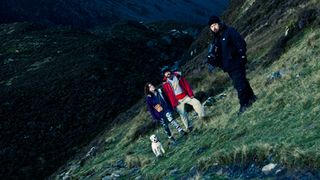
Most Difficult Day
Steve Oram: Oh the desolate place. There’s no contest.
Alice Lowe: We very flippantly put in the script – a really early draft – they go to a desolate place, and we didn’t really know what that meant.
We just went ‘desolate place’. The desolate place was the most horrifically hair-raising place.
Steve Oram: It was the most amazing experience. We went to Honister Pass, on top of a slate quarry so we had to go up in a 4 x 4…
Alice Lowe : …With a plunging mountain by the side…
Steve Oram: …being dragged up in these specialist vehicles…
Alice Lowe: …By guys who work at the mine, who are really tough and stuff.
Steve Oram: Then there was this hurricane thing. A squall of sleet and rain…
Alice Lowe: You can see it in the film.
Steve Oram: We had like 30 second windows of acting, and then we had to go back into the car.
Alice Lowe: The camera was sort of rocking with the effects of this storm basically. People had this traumatic stare in their eyes because they were having to hunker down outside, all day.
People were just frightened.
Steve Oram: Absolutely terrifying.
Ben Wheatley: Yeah, it was tough. But it was kind of exhilarating doing it like that.
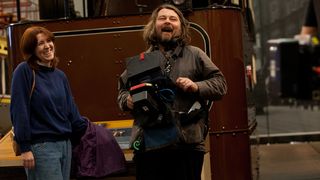
Effects
Ben Wheatley: I’ve always liked working with effects.
That’s a major of filmmaking for me - the illusion of it.
And, working with the effects coordinator, Dan Martin, what he brings to the party is that it’s no fuss and it’s quick.
It never turns into an effects fiasco and I really like that and appreciate that a lot.
I like to shoot effects quickly as well, because the moments are so fleeting you don’t want to piss half the day away which could be full of brilliant acting for something like that.
But I thought it went really, really well, all of that stuff.
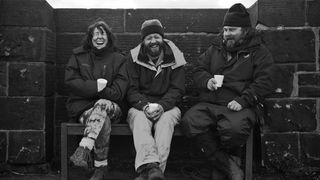
Reaction
Ben Wheatley: Cannes was the first time with a proper festival audience.
I think you have to protect yourself, kind of psychically, so you don’t think about it at all.
And then it’s just happening and you go ‘Oh’ and then it’s finished and you go ‘Oh, okay’.
And then afterwards you process it.
Maybe a month afterwards. And you go ‘Ah, well that was good, that went really well’ because If you invest too much in the moment, if it went badly then it could be too bad, too crushing and weird and horrible.
There’s all sorts of things that can go wrong, projector can fail or just goes badly and no one likes it.
What’s nice is in the same way that a horror film is interesting when you watch it with an audience and you can tell when they’re all upset and stuff, when people are laughing it’s a great feeling and when they keep laughing. It’s really, really good.
And you can tell, you can really tell from the screenings that people have really enjoyed the film.
It’s been good, you know, because there were moments after Kill List when I thought, 'Oh God, why, if it’s your job making entertainment, or making movies, why would you want to make people feel miserable?' And with this, it’s nice hearing people laugh.
Alice Lowe: It was also the point at which people knew genuinely nothing about the film.
It was so hot off the press literally. They’d had to race to finish it in time for Cannes.
No one knew even what the plot was. A lot of people are seeing it now and they’ve got an idea about what it’s going to be about but the best way to see it, is not to know anything about it. To genuinely be responding for the first time.
In Cannes, we got a standing ovation at the end.
I thought it was a joke. I didn’t understand what was going on, but that was really mad. It was cloud nine type of experience.
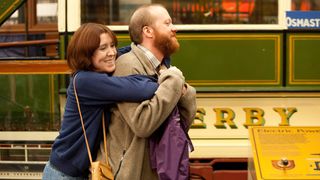
Next Projects
Ben Wheatley: Well there’s A Field In England which is next, which is shot and then there’s Freakshift .
We still want to do Mega Evil Motherfuckers which is the claymation project, so we’re still working on that and trying to get that together.
It’s about a mixed gender super-prison called The Castle of Pain and I have a guy who has his wife murdered by this villainous eight-year-old girl called Cardinal Prime.
Cardinal Prime gets imprisoned in the Castle of Pain and he has to go into the prison and fight everyone and kill her.
And they end up releasing this thing called the Mad Monkey, which is this huge beast.
So, yeah it’s pretty fucking nuts. It’s going to be the world’s most violent film.
Alice Lowe: I’m writing another one, and hopefully directing it next summer. It’s called Lily .
It’s about a bored housewife who has a fantasy world which takes over. The major proportion of it is going to be quite gritty domestic.
The fantasy sequences we’ve done in a completely different way.
Hopefully it’s that Wizard of Oz sort of contrast where you go from one thing to another.
It’s a chance for me to try some stuff as I’ve only directed short films and TV before.
I think it’s just a chance to play around with some ideas, and try some techniques out.
Steve Oram: I’m doing some writing more than directing early next year, for a low budget extension of some films I’ve done for my online project, Lincoln Studios.
It’s about a man who agrees to kill someone for money, but he’s not suited to the job and he’s got a mentally retarded brother.
They go on this terrible adventure.
It's a disaster story really.
Sightseers is released on Friday 30 November. Read our Sightseers review
Sam Ashurst is a London-based film maker, journalist, and podcast host. He's the director of Frankenstein's Creature, A Little More Flesh + A Little More Flesh 2, and co-hosts the Arrow Podcast. His words have appeared on HuffPost, MSN, The Independent, Yahoo, Cosmopolitan, and many more, as well as of course for us here at 12DOVE.
Most Popular





